
|
![]()
Greatest Films of the 1970s
1970 | 1971 | 1972 | 1973 | 1974 | 1975 | 1976 | 1977 | 1978 | 1979
Title Screen Film Genre(s), Title, Year, (Country), Length, Director, Description 


Barry Lyndon (1975, UK), 184 minutes, D: Stanley Kubrick
Stanley Kubrick's lengthy tale - the tragic exploits of a scheming Irish rogue named Redmond Barry (Ryan O’Neal) to enter the 18th century aristocracy by marrying a rich widow, captured the Oscar for Best Cinematography. It was one of the most visually-beautiful films ever made. The lush, opulent, romanticized views of English countryside landscapes often dominated the screen, carefully composed as artistic paintings and appearing similar to the works of English portrait and landscape painter Thomas Gainsborough. When the camera pulled back, characters were often dwarfed by the breathtaking beauty of the surroundings. Technical innovations in some indoor scenes involved using only natural lighting - the golden illumination from candles.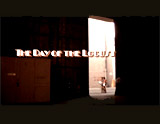

The Day of the Locust (1975), 144 minutes, D: John Schlesinger


Dersu Uzala (1975, Jp./Soviet Union) (aka The Hunter), 137 minutes, D: Akira Kurosawa




Dog Day Afternoon (1975), 130 minutes, D: Sidney Lumet
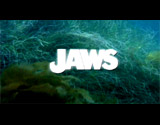



Jaws (1975), 120 minutes, D: Steven Spielberg
From the best-selling novel by Peter Benchley and with a thrilling, memorable and rousing score by John Williams. A Great White Shark terrorizes a popular Massachusetts seaside resort area, Amity Island (fictional), during the summer tourist season in this action/adventure/horror classic, a quintessential summer blockbuster film from Steven Spielberg. Surprise attacks on the New England coast (partially set over Independence Day), in which the monstrous man-eater preys on the unsuspecting inhabitants and vacationers alike, are truly frightening and scary. Three unlikely partners team up on a suspenseful 'fishing trip' to hunt down the rogue and destroy it: the new chief of police from New York (Roy Scheider), a young university-educated oceanographer (Richard Dreyfuss), and a crusty, grizzled old-time fisherman (Robert Shaw) resembling the obsessed Ahab in the Moby Dick tale.
Love and Death (1975), 85 minutes, D: Woody Allen



The Man Who Would Be King (1975, UK), 129 minutes, D: John Huston
An old-fashioned, rousing costume adventure film and morality tale told in flashback from writer/director John Huston and based on Anglo-Indian novelist Rudyard Kipling's (Christopher Plummer) short story tale. [Huston had originally wanted to make the film in the 1940s, with Humphrey Bogart and Clark Gable in the lead roles as soldiers of fortune.] Shot on location in Morocco, it is about two roguish British soldiers-adventurers, Peachy Carnehan (Michael Caine) and Daniel Dravot (Sean Connery) at the turn of the century who set out from Raj-ruled India. While serving as military officers in the remote city of Kafiristan in E. Afghanistan (a province now called Nuristan), the pair are mistaken for gods or kings by the people in the priest cult, when an arrow from a renegade attack strikes Daniel's chest, but he survives without injury. Rather than actually being immortal, the arrow struck his bandolier and failed to penetrate into his flesh and wound him. The natives believe him to be the incarnation of Alexander the Great, and Daniel himself begins to arrogantly believe in his own divinity, and his right to take their rich royal treasures from the holy city of Sikandergul. Peachy, on the other hand, suspects that eventually their fraud will be found out, and attempts to get Daniel to give up the delusion and leave before calamity strikes. But Daniel insists on taking a native wife named Roxanne (Shakira Caine, Michael's real-life wife in her screen debut). The marriage turns out to be a disaster, because Roxanne, in fear of marrying a god, bites Daniel's face and draws blood - thereby exposing the two as mortals. As the two flee the city and its outraged natives, Daniel is killed when he falls to his death from a rope bridge into a deep gorge, while Peachy is caught, tortured and crucified, and left for dead. He eventually survives and returns to England where he tells his story to Rudyard Kipling. DreamWorks SKG's film version, its second feature-length animated film The Road to El Dorado (2000), with Kenneth Branagh and Kevin Kline, was set in Central America instead of Afghanistan. With four Academy Award nominations including: Best Adapted Screenplay (John Huston & Gladys Hill), Best Film Editing, Best Costume Design (Edith Head), and Best Art Direction-Set Decoration.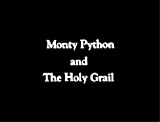



Monty Python and the Holy Grail (1975, UK), 89 minutes, D: Terry Gilliam, Terry Jones
The silly, chaotic, sick joke-filled and zany Monty Python troupe, a close modern equivalent to the Marx Brothers, first appeared in their late 60s BBC-TV show, Monty Python's Flying Circus. Afterwards, the group compiled a retelling of the show's sketches for the big screen in And Now For Something Completely Different (1971). This was their second film and first feature-length film - a raucous, anarchic retelling of the Middle Ages legend of King Arthur (Graham Chapman) and his quest, that skewered medieval action epics, mythology, war, religion, the Arthurian legend, Camelot and more. The opening credits in this popular, outrageous, and original cult film slowly give way to mock Swedish titles, and drift into ravings about the moose and its virtues, before grinding to a halt with: "We apologize for the fault in the subtitles. Those responsible have been sacked." The opening credits resume, but still with odd credits added for everything from "Moose Costumes" to "Moose trained to mix concrete and sign complicated insurance forms," which is followed by another apology: "The directors of the firm hired to continue the credits after the other people had been sacked, wish it to be known that they have just been sacked. The credits have been completed in an entirely different style at great expense and at the last minute." Their style of humor was best exemplified by the comically-gruesome encounter with the unbelievably persistent Black Knight (John Cleese), who still insists on fighting ("It's just a flesh wound") after his limbs have been hacked off by King Arthur. Many fans can instantly recite many of the memorable scenes, vignettes and set-pieces, such as the "Bring Out Your Dead" scene, or the rude, taunting Frenchman, a bloodthirsty killer rabbit, and the tree-shaped Knights who say "Ni." Over the years, the troupe's popularity would grow with additional Monty Python films, such as Monty Python's Life of Brian (1979),and Monty Python's The Meaning of Life (1983).

Nashville (1975), 159 minutes, D: Robert Altman
Altman's great country-music, Bicentennial epic length drama, set in the capital city of Nashville - a microcosm of America, was summed up in one of the film's lyrics: "We must be doing something right to last 200 years." It was one of the great American films of the 1970s with its multi-level, original, tragic-comedic epic study of American culture, show-business, leadership and politics. Altman was cynically commenting upon the confused state of American society with its political emptiness and showy commercialism. The business of country-western music co-existed with the election campaign of an unseen, independent (populist) party candidate. It was told as an intricate, free-form, impressionistic, intertwining tale, tangentially linking together twenty-four protagonists who arrived on the scene to be part of the Nashville showbiz crowd, and appeared at a pop concert and a political rally for the "Replacement Party." Colorful characters, both performers and audience members in the mosaic-style film, converge in a massive traffic jam and were present during a violent assassination scene by the film's conclusion: Presidential hopeful Hal Philip Walker, frail, crooning country western sweetheart Barbara Jean (Ronee Blakley), singing rival Connie White (Karen Black), folk-singing lecherous lover Tom Frank (Keith Carradine), BBC tele-journalist Opal (Geraldine Chaplin), a groupie from LA (Shelley Duvall), and master of ceremonies Haven Hamilton (Henry Gibson). A satirical film that commented upon religion, politics, sex, violence, and the materialistic culture. Altman keenly observed the differing agendas of the characters - companionship and/or sex, a shot at stardom or political advancement, and musical aspirations, to name a few. Notice the multiple means of communication to connect the characters (phone calls, tape recordings, radio and TV, and P.A. announcements), and that most of them performed somewhere or another.



Night Moves (1975), 100 minutes, D: Arthur Penn
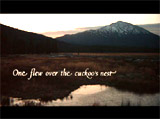

One Flew Over the Cuckoo's Nest (1975), 133 minutes, D: Milos Forman
The mid-70s baby-boomers' counter-culture was ripe for a film dramatizing rebellion and insubordination against oppressive bureaucracy, and an insistence upon rights, self-expression and freedom. A compelling, socially-conscious portrait of mental institution patients pitted the protagonist against a tyrannical, sinister head nurse, cinematically adapted from Ken Kesey's celebrated 1962 novel. A free-spirited, ebullient, rebellious convict Randle P. McMurphy (Jack Nicholson), an energetic, flamboyant, wise-guy anti-hero, feigned insanity to avoid a jail sentence, and was incarcerated in an insane asylum. His crazed struggles against oppression, the status-quo, conformity and the manipulative, authoritarian Nurse Ratched (Louise Fletcher) symbolized the rebellious 60's era. He served as a catalyst and invigorating inspiration for the subdued, troubled patients against the mental institution ("the cuckoo's nest"). When he protested the arbitrary and heavy-handed rules about watching the World Series, and illegally staged both a fishing trip and a drinking party in the ward - he found that his rebellious struggle was hopeless and powerless, capped by his own zombie-producing, paralyzing lobotomy. He was taken down and paid the ultimate price for his messianic, outrageous non-conformity. The strong and silent Indian Chief Bromden (Will Sampson) that he had befriended relieved his pitiful misery.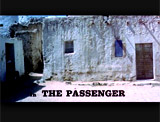

The Passenger (1975, It./Sp.) (aka Professione: Reporter), 125 minutes, D: Michelangelo Antonioni



Picnic at Hanging Rock (1975, Australia), 115 minutes, D: Peter Weir
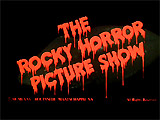





The Rocky Horror Picture Show (1975, UK), 100 minutes, D: Jim Sharman
Perhaps the most popular cult film of all time, this low-budget, campy horror rock musical from writer/director Jim Sharman initially bombed at the box-office. One of the longest-running films of all time, the bizarre film honors (and gently spoofs) the horror and science fiction genres of the past (RKO Pictures' King Kong (1933), Forbidden Planet (1956), The Wizard of Oz (1939), the Hercules films, The Day of the Triffids (1963), the classic "atomic age" sci-fi horror of the '50s, such as It Came From Outer Space (1953), and, of course, Frankenstein (1931)). The film was based on the 1973 British musical stage play The Rocky Horror Show by playwright/composer Richard O'Brien (who also plays the butler named Riff Raff), about a haunted house inhabited by transexual aliens. The strange tale follows a straightlaced, wholesome, newly-engaged couple, Brad Majors (Barry Bostwick in his feature film debut) and Janet Weiss (Susan Sarandon) who are forced to take refuge in a spooky mansion/castle on a rainy night when their car had a flat tire. The two are brought into a world of subversiveness by the bisexual host - the carnivorous "sweet transvestite from Transsexual, Transylvania" Dr. Frank N. Furter (Tim Curry), a mad scientist whose dream was to create the perfect man named Rocky "with blond hair and a tan." The film features catchy, overtly-sexual songs like "The Time Warp," "Touch-a, Touch-a, Touch Me," and "Sweet Transvestite." When the film began to play at midnight showings in Greenwich Village in April 1976, the film was revived as a multi-media, audience participatory experience and exploded as a worldwide phenomenon for many years.


Salo, Or the 120 Days of Sodom (1975, It./Fr.) (aka Salo O Le Centoventi Giornate Di Sodoma), 117 minutes, D: Pier Paolo Pasolini
This notorious and controversial film was directed by Italian poet, novelist, painter and film-maker Pier Paolo Pasolini, who was murdered before it was released. It was based on a work by the notorious Marquis de Sade - to depict the short-lived, lakeside republic of Salo in Nazi-controlled N. Italy at the close of WWII, where four fascist officials in a secluded chateau near Marzabotto totally controlled, abused, tortured, enslaved and victimized an anonymous group of about 30 young and attractive peasant teenagers (both male and female) who were rounded up. The group of four fascist officials (with four similar females) subjected them to sexual and physical tortures, psychological humiliation and violence over a period of a few days. This extreme exercise of power was supposed to symbolize the evil of fascism itself.


Seven Beauties (1975, It.) (aka Pasqualino Settebellezze), 115 minutes, D: Lina Wertmüller



Shampoo (1975), 109 minutes, D: Hal Ashby



Tommy (1975, UK), 111 minutes, D: Ken Russell